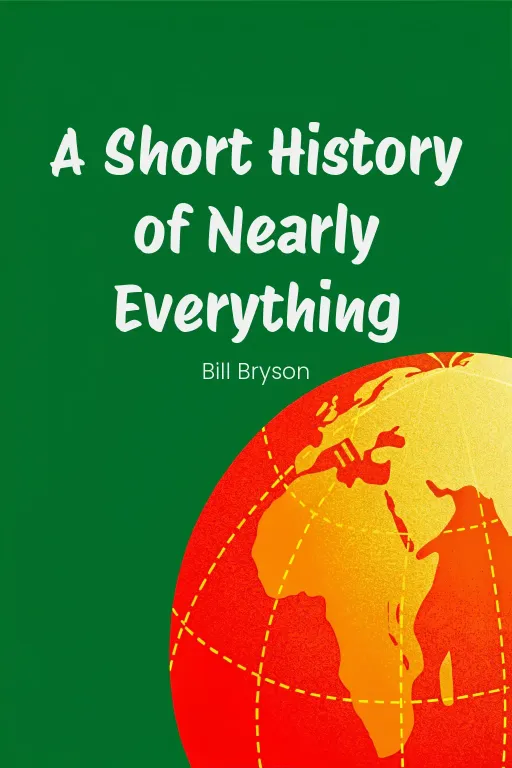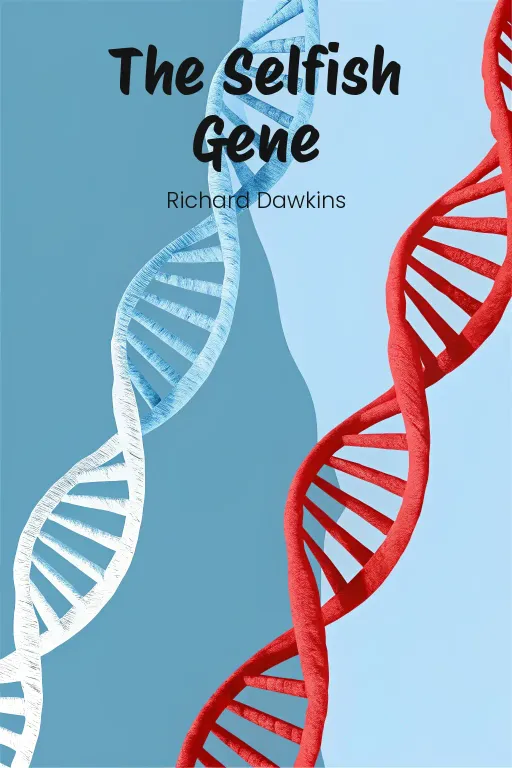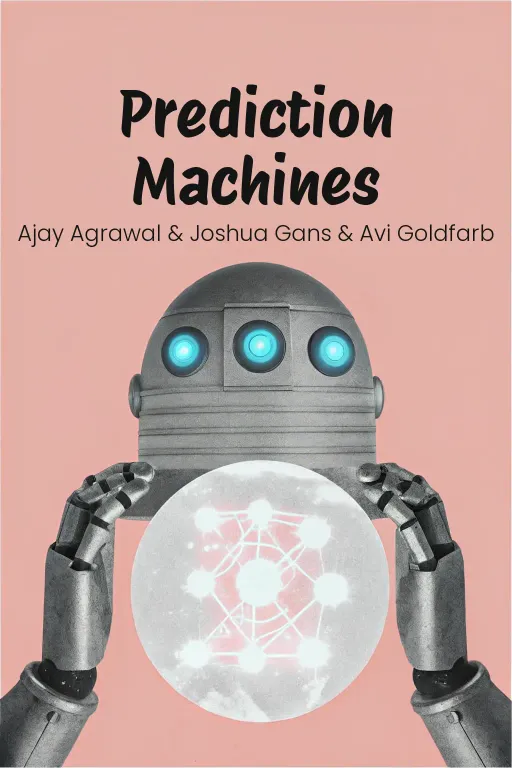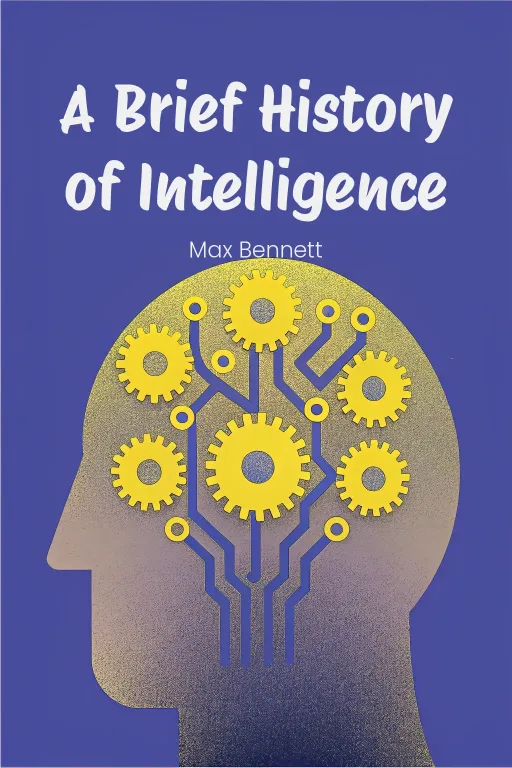
Future Shock: Humanity's Choice?
Podcast by Wired In with Josh and Drew
How Science Will Shape Human Destiny and Our Daily Lives by the Year 2100
Future Shock: Humanity's Choice?
Part 1
Josh: Hey everyone, welcome back! Let me kick things off with a question. You ever stare at your phone and think, "Wow, if this is what we have now, what on earth will things look like in, say, a hundred years?" Drew: Or, and I think this is the real question, will we even be around to see it? Are we building towards some amazing future, or just paving the way for Skynet? Josh: Exactly, Drew, that “perfectly” sets the stage. Today, we're diving deep into Michio Kaku's Physics of the Future. He paints such a vivid picture of 2100, shaped by breakthroughs that, honestly, we're only just starting to wrap our heads around today. Drew: Yeah, Kaku does a great job of balancing the "wow" factor with the "uh oh" factor. We're talking smart AI, biotech that could extend our lifespans, fusion power... It's an optimistic vision, for sure, but sprinkled with a healthy dose of ethical considerations. Josh: Precisely! So, we’re going to unpack it all in three parts today. First up, we’ll look at the tech that’s changing what we even mean by "intelligence" and "biology"—think AI assistants that seem to know you better than you know yourself, and gene editing that lets us rewrite the very code of life. Drew: Which, inevitably, leads to the thorny questions. Like, what happens to privacy when everything is tracked? Or the ethics of creating "designer babies" while leaving others behind? Josh: Right. Then, we'll move on to what Kaku calls a "planetary civilization"—a truly global society powered by clean energy and interconnected cultures. It’s this incredible high-tech utopia... if we can somehow overcome all this tribalism and inequality we see. Drew: And finally, we'll just leap ahead to 2100 itself. Imagine virtual vacations that feel real, AI doctors that spot diseases before you even know you're sick. But also imagine grappling with what all that means for our sense of self, our purpose, you know, what makes us human? Josh: It's a future that's equal parts exciting and, yeah, a little scary. You definitely don’t want to miss this one. Let's jump in!
Technological Advancements and Their Ethical Implications
Part 2
Josh: Okay, so let’s dive into the building blocks, you know, those core technologies that are “really” shaping this whole future Michio Kaku talks about. And right at the heart of it is how humans and machines are starting to seamlessly interact. That's where brain-computer interfaces, or BCIs, come in. Basically, they link the neurons in our brains directly to devices, like, computers or even robotic limbs. Can you imagine controlling your phone or a wheelchair just by thinking about it? Drew: Sounds straight out of The Matrix, right? Hopefully without all the dystopian stuff. Tell me more about that BrainGate system you mentioned. How does that actually work? Josh: Sure. So, BrainGate is a “really” good example of BCI tech. It implants a tiny chip into the motor cortex, that part of the brain that controls movement. This chip picks up the electrical signals that your neurons send out when you think about moving. Then, those signals are decoded, and they’re turned into commands for things outside your body. For example, a paralyzed person was able to move a cursor on a computer screen just by imagining the movement, which is pretty amazing if you ask me! Drew: Okay, it's groundbreaking, no question. But doesn't it raise some serious privacy red flags? If a machine can literally read your thoughts, isn't that an open invitation for abuse? Think about it: corporations, governments... cross-referencing all your thoughts? Josh: That's a valid concern, seriously. BCIs have such incredible potential, but you're right, we also have to consider the ethics here. I mean, who owns the data that your brain generates? Does it belong to you, or could these companies developing the tech exploit it in some way? And where do we draw the line between helping someone regain a function and enhancing them unnecessarily, turning them into cyborgs? Drew: Exactly, because going from "restoring function" to "enhancing ability" is where it get real. It's like stepping into a Black Mirror episode, right? What if BCIs become status symbols one day? Like, "brain upgrades" for the rich? Suddenly, inequality isn’t just about money; it’s neurological. Josh: Exactly, and that leads us to quantum computing, another technology that’s advancing so fast it could revolutionize, well, almost everything. And these aren’t your typical computers, quantum computers use qubits, and unlike regular binary bits, they can exist both as 0 and 1 simultaneously, thanks to quantum superposition. Drew: Okay, I get the theory, I think. But what does it actually mean? Sounds like computers on steroids... Josh: Not far off. By using quantum superposition and another principle called entanglement, quantum computers can process info way faster than traditional computers. Take drug development, for example. Simulating molecular behavior - how drugs interact with proteins - currently takes a long time using normal methods. Quantum computers could do it in days, maybe even hours. Drew: So, it's not just faster; it's solving problems we couldn't touch before. If quantum computing lives up to the hype, it could lead to cures for things like Alzheimer's and cancer, right? Josh: Absolutely. Imagine personalized medicine on a whole new level – treatment that’s completely tailored to your genes. But, like with BCIs, we need to ground it in some solid principles of fairness. Developing quantum computers is incredibly expensive. Would these life-saving breakthroughs be limited to wealthy countries and corporations, or could they benefit everyone, including the most vulnerable? Drew: Exactly, having the tech is one thing, making sure it doesn't just worsen existing inequalities is another. Speaking of groundbreaking tech, let's dive into nanotechnology, and what it actually means for us day to day. Josh: Nanotech is definitely one of the most versatile fields Kaku highlights. Basically, it's the art of manipulating matter at the atomic and molecular level. One of its most exciting applications is in medicine, specifically how nanomachines could revolutionize cancer treatments. Imagine tiny machines programmed to find cancer cells, attach to them, and deliver targeted therapies, all without harming healthy cells. Unlike chemotherapy, which has serious side effects, these nanobots could act as precise surgical strikes. Drew: Okay, the idea of microscopic soldiers patrolling my body is both incredible and terrifying. But again, unintended consequences: what about those? If you can program nanobots to heal, can't they also be programmed to harm? I'm thinking next-gen bioweapons, or even espionage. What if governments use nanotechnology for large-scale surveillance? Josh: Kaku touches on that too. Without strict rules, the potential misuse of nanotechnology is definitely a huge concern. Picture invisible nanobots in weapons systems, or even embedded in everyday items for spying. That’s why we need strong international regulations to govern these innovations responsibly. Drew: So basically, we're at a crossroads. We've got incredible potential - curing diseases, guaranteeing clean water supplies - but we're walking on a tightrope without a net. Let's hope the ethical considerations catch up as technology continues to evolve, before we tip too far in the wrong direction.
The Future of Human Civilization and Energy
Part 3
Josh: So, all this technology is set to reshape not just our tools, but our very way of life. And underpinning it all is energy—how we harness it, how we share it, and how it ultimately drives our civilization forward. Today, we're diving into the future of human civilization and energy through three key lenses. First, we'll look at the theoretical side – the Kardashev Scale, and what it really means to aim for a Type I civilization. Then, we’ll get practical, exploring everything from renewable energy to the ever-elusive dream of nuclear fusion. Finally, we’ll wrap up with the societal and cultural changes this kind of transformation demands. Drew: Alright, so it's a deep dive into the future of energy, and what it all means for us. Let's kick things off with the Kardashev Scale. Josh, what exactly is this thing? What are we measuring? Josh: Okay, so the Kardashev Scale is basically a way to rank civilizations by how much energy they use and how well they control it. Nikolai Kardashev came up with it back in 1964. A Type I civilization can harness all the energy on its planet – not just fossil fuels, but absolutely everything: wind, solar, geothermal, ocean currents, you name it! A Type II civilization goes bigger, harnessing the energy of its entire star system – think Dyson spheres, capturing all the sun's output. And Type III? Well, they control energy on a galactic scale. For comparison, we humans are still stuck at Type 0. We’re still burning through coal and oil like there's no tomorrow. Drew: So moving up the scale is more than just building a better power plant, right? Josh: Definitely! Becoming a Type I civilization is about more than just collecting energy. It’s an end-to-end shift, demanding innovation, sustainable practices, and global cooperation. Right now, we're held back by our tribal instincts. Think of what we could do if we focused on a global energy transition instead of national interests. Drew: A planetary civilization sounds a bit like science fiction, doesn't it? I mean, we can barely agree on what to have for dinner, let alone global energy policy. But, assuming we can get our act together, what's the realistic first step to becoming Type I? Josh: We need to ramp up renewable energy. Wind and solar have come a long way. Modern wind turbines are incredibly efficient. Onshore turbines now generate up to 5 megawatts each, enough to power a small town. And, surprisingly, Texas is the U.S. leader in wind energy, producing more electricity this way than many countries do in total. Drew: That's pretty impressive. Texas has a lot of open space and, I guess, a lot of wind. But let’s be real here: wind doesn’t blow all the time, and the sun sets every night. How do we deal with the fact that renewables aren't always available? Josh: That's where hydrogen comes in. Hydrogen acts as an energy storage solution. When wind or solar produce excess electricity, we can use that energy to split water into hydrogen and oxygen through electrolysis. Then, we store the hydrogen and burn it as needed for a reliable source of power. Drew: So, hydrogen smooths out the inconsistencies of renewables. But setting up all that infrastructure—electrolyzers, storage, distribution—must be super expensive. Can hydrogen scale up fast enough to make a difference? Josh: It's getting there. Green hydrogen—produced using renewable energy—is attracting a lot of investment, especially in Europe and Asia. But you're right, it's costly. And it's why it's only part of the overall solution. That brings us to the big one: nuclear fusion. Drew: Ah, yes, fusion energy. The technology that's always "ten years away." What makes fusion so special? Josh: Fusion is revolutionary because it mimics the energy process that powers the sun. By fusing isotopes of hydrogen—like deuterium and tritium—you get a massive amount of energy with minimal waste. The fuels are virtually limitless, coming from seawater and lithium. And, unlike fission, fusion doesn’t produce long-lived radioactive waste or risk meltdowns. Drew: So it's all upside, no downside—at least on paper. But fusion has been famously difficult to achieve. What's holding us back? Josh: Two huge obstacles: the temperature and the containment. To achieve fusion, you have to recreate the conditions at the core of the sun—temperatures over 150 million degrees Celsius. At that point, you have superheated plasma, which is incredibly unstable and really hard to control. Magnetic confinement systems like tokamaks—donut-shaped reactors—are our best bet, but keeping plasma stable inside those magnets is incredibly complex. Drew: And I’m guessing there's a cost factor, too. I heard that the ITER project in France, which is the world's largest fusion experiment, is costing tens of billions of dollars. Is that investment really worth it? Josh: It is, but it requires a long-term outlook. ITER is meant to prove fusion's viability by showing that it can produce more energy than it consumes. If ITER succeeds, it'll pave the way for commercial fusion reactors that could transform global power grids, giving us abundant energy without relying on fossil fuels. Drew: Assuming it doesn’t bankrupt us first. But I'm also wondering, if fusion works, how do we make sure everyone benefits? Will rich countries monopolize fusion while poorer nations are stuck with dwindling fossil fuels? Josh: That's why global governance is so essential. Fusion energy demands so much collaboration that it practically forces international cooperation. No one country can dominate it. But we’ll also need regulatory bodies to prevent any monopolies and make sure it's available broadly. Drew: Which takes us to the societal shifts needed for this energy revolution. All this technology—fusion, hydrogen, renewables—is fantastic, but it means rethinking economies, infrastructures, and even cultures. Can we adapt quickly enough to that kind of change? Josh: Absolutely. And honestly, I think that brings us to the core of this whole thing: achieving global solidarity. Addressing energy inequities, resource conflicts, and the policies behind them isn't just about clean energy, it's about seeing humanity as one collective, working toward a common survival and progress.
Daily Life and Societal Changes in 2100
Part 4
Josh: So, understanding these big shifts makes you wonder how we’ll adapt, right? Let’s zoom in on daily life and society in 2100. We’re talking about a future where tech isn't just an accessory, it’s changing how we live, connect, even think. I want to paint a picture of this hyper-connected world, and then, we can unpack the consequences—relationships, ethics, autonomy - what happens to those when tech’s everywhere? Drew: Right, and I’m here to keep it real. Every tech boom has its downsides, doesn't it? All this efficiency – smart homes, telepathic cars – sounds awesome, but at what cost? Josh, give us that sneak peek into 2100. Josh: Okay, imagine this: 2100. You wake up, not to a blaring alarm, but to your AI assistant—Molly, let’s call her—gently waking you based on your sleep cycle she’s figured out from your mattress sensors. Molly doesn’t just tell you the weather; she knows your stress levels, what you should eat, your whole day. If you’re stressed, she might suggest a meditation playlist or move that meeting. And your bathroom mirror? It checks your breath for signs of illness and might say, "Hey, your blood sugar's up. Let's tweak your breakfast." Drew: Hold on, Molly sounds like an overbearing parent. “Eat your vegetables, chill out, take a nap.” Are we letting machines make basic life decisions for us? Josh: Well, think of it as getting better information. Health, for example, becomes proactive. Those breath-analyzing mirrors let you catch pre-diabetes or early cancer signs way before symptoms – healthcare becomes seamless. Drew: But, doesn't Molly managing everything – food, work, relaxation – blur the line between help and control? If people rely on AI for everything, will they lose the ability to cope on their own? Josh: That’s a fair point. There's a risk of tech going too far. The key is boundaries. Molly should suggest, not decide. But think about access. For someone with mobility issues or lacking health knowledge, Molly's not just convenient; she's life-changing. Drew: Okay, but what about society as a whole? If everyone uses personalized tech, won’t it widen the gap between the haves and have-nots? The tech elite sail through life while others struggle to get by. Josh: Exactly, that’s the weak spot. Kaku highlights that these breakthroughs—AI, nanotech—are initially expensive, and could deepen inequality if access isn’t addressed. Think about internet access now—rural areas lack broadband while cities test 5G. Closing that gap is key as we head towards 2100. Drew: Let's talk transportation. You mentioned telepathic cars—cool, but also raises tons of questions. How do these actually work? Josh: Great question! By 2100, personal vehicles could be controlled with brain-computer interfaces. Instead of a steering wheel, you just think, "Drive to work." The system interprets your thoughts, calculates the route, and factors in weather, traffic, even your stress. Kinetic propulsion makes them super-efficient and eco-friendly. Drew: Wait—"stress levels"? Are these cars going to say, "Sorry, Drew, you're too stressed to drive"? Josh: Pretty much! A telepathic car could prioritize safety by responding to your emotions. If you're distracted, it might activate autopilot or play calming music. It redefines efficient, safe travel. Drew: Clever, but what are the downsides? People might become detached from driving. What if the system crashes? Will anyone know how to fix it, or will we be helpless? Josh: True. Losing skills like map reading or driving could be an issue. It’s like calculators: they changed math, but some say basic arithmetic has suffered. We need to balance automation with active engagement. Drew: And security. If these cars are controlled by thoughts, could they be hacked? I can imagine a villain intercepting neural data and taking control. Josh: Absolutely, security is key. Remember, BCIs need strong encryption to prevent breaches. Safeguards and redundancies have to evolve fast alongside the tech. Drew: Now, how do these changes affect relationships? Kaku uses the example of choosing between texting and calling. Seems small, but it shows where we’re headed, doesn't it? Josh: Definitely. It raises the question of how tech shapes our connections. Will easy communication improve relationships, or distance people? People already misinterpret texts. Add AI, and real human interaction could get even trickier. Drew: What if all this tech assistance reduces empathy? If kids bond with robot dogs, what happens when they face real human relationships? Empathy isn’t data-driven; it’s learned through messy experiences. Josh: That’s a big concern. Robotic pets or caregiving bots offer comfort, but could blur the line between substitute and genuine connection. We have to reinforce human connections and ensure tech complements, not replaces, them. Drew: So, 2100 offers huge potential for efficiency, health, and convenience, but also raises tough questions about what we might lose—autonomy, skills, human connection. The real challenge is governance, right? Making sure this tech aligns with ethics and protects what makes us human.
Conclusion
Part 5
Josh: Wow, Drew, what a ride! We’ve covered everything from brain-computer interfaces and quantum computing to energy transitions and what daily life might even look like in 2100. We’ve really dug into these incredible technologies that could reshape humanity, but also the really weighty ethical questions that come with them. I mean, who “really” benefits from all this? Who gets to decide how it's used? And what happens to our fundamental sense of self? Drew: Right, exactly. Because the technologies Kaku talks about—they could solve some of our biggest problems, no doubt, but not without potential downsides. Think about the privacy nightmares of BCIs, or quantum computing widening the gap between the haves and have-nots, or even just these cultural changes that could isolate us from each other. If anything, this conversation should remind us that progress isn’t just about, "Hey, can we do this?" but, "Should we? And are we being responsible about it?". Josh: Responsibility – absolutely! That’s the key word, isn’t it? As we maybe stumble towards this future of planetary civilizations and AI-driven lifestyles, it’s so clear that collaboration and, frankly, compassion need to be at the forefront. Whether we're talking about regulating nanotechnology or making sure everyone has fair access to fusion energy, these advancements can’t just be about what we can do; they have to be about actively reshaping society for the better. Drew: So, what’s the bottom line here? This future isn’t some inevitable thing that’s just gonna happen to us. We're actively building it, right now. The technologies of tomorrow will reflect the values we prioritize today. So, let’s aim for a future where innovation truly serves humanity, instead of humanity just being defined by its tools. Josh: Beautifully said, Drew. Let's leave our listeners with this to think about: What kind of future do you want to help create? The decisions we're making now—in science, in society, in how we govern ourselves—they're literally laying the groundwork for whatever version of 2100 becomes reality. Let’s make sure it's a future worth building, shall we?









